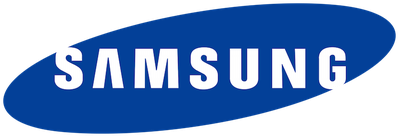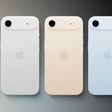Samsung Confirmed to Produce A9 Chips for Apple's Next-Generation Devices
Samsung will provide Apple with A9 chips for its next-generation iPhone and other devices, reports Bloomberg, confirming a previous report in early February. Over the past couple of months there had been confusion and conflicting reports as to whether Samsung, Apple's longtime supplier and rival, or Taiwan Semiconductor Manufacturing Company (TSMC) would produce the chips.

Samsung will start making Apple A9 processor chips at its Giheung plant in South Korea, the people said, asking not to be identified because the contract hasn’t been discussed publicly. Additional orders will go to Samsung’s partner Globalfoundries Inc., according to another person familiar with the arrangement.
In 2013, Apple signed a chip production deal with TSMC in hopes of diversifying its supply chain resources and reducing its reliance on Samsung amid the two companies' ongoing legal disputes.
It appears that Samsung's investment in manufacturing technologies won Apple over, with TSMC Chairman Morris Chang recently telling investors that the company would lose ground to Samsung in producing the most advanced chip technology possible in 2015, though he also noted the company would regain that advantage in 2016.
Samsung is reportedly producing the chips with its advanced 14-nanometer process, which has outpaced TSMC's capabilities and results in smaller chips that consume less energy and provide more processing power. The Korean company is also said to be providing memory chips for Apple's next-generation devices.
Thus far, little is known about what the next-generation iPhones or iPads could include other than new A9 chips, but new reports indicate Apple could be bringing its new Force Touch technology to the devices. Other rumors also suggest the A9 may make its way into the "iPad Pro", which may debut in late 2015. It's likely the 2015 versions of the iPad Air and iPad mini will be outfitted with versions of the A9 as well.
Popular Stories
Since the iPhone X in 2017, all of Apple's highest-end iPhone models have featured either stainless steel or titanium frames, but it has now been rumored that this design decision will be coming to an end with the iPhone 17 Pro models later this year.
In a post on Chinese social media platform Weibo today, the account Instant Digital said that the iPhone 17 Pro models will have an aluminum...
Apple is continuing to refine and update iOS 26, and beta three features smaller changes than we saw in beta 2, plus further tweaks to the Liquid Glass design. Apple is gearing up for the next phase of beta testing, and the company has promised that a public beta is set to come out in July.
Transparency
In some apps like Apple Music, Podcasts, and the App Store, Apple has toned down the...
In select U.S. states, residents can add their driver's license or state ID to the Wallet app on the iPhone and Apple Watch, providing a convenient and contactless way to display proof of identity or age at select airports and businesses, and in select apps.
Unfortunately, this feature continues to roll out very slowly since it was announced in 2021, with only nine U.S. states, Puerto Rico,...
Apple will launch its new iPhone 17 series in two months, and the iPhone 17 Pro models are expected to get a new design for the rear casing and the camera area. But more significant changes to the lineup are not expected until next year, when the iPhone 18 models arrive.
If you're thinking of trading in your iPhone for this year's latest, consider the following features rumored to be coming...
Apple is expanding the ability to add an Apple Account Card to the Wallet app to more countries, according to backend Apple Pay changes.
With iOS 15.5, Apple updated the Wallet app to allow users to add an Apple Account Card, which displays the Apple credit balance associated with an Apple ID.
If you receive an Apple gift card, for example, it is added to an Apple Account that is also...
Three out of four iPhone 17 models will feature more RAM than the equivalent iPhone 16 models, according to a new leak that aligns with previous rumors.
The all-new iPhone 17 Air, the iPhone 17 Pro, and the iPhone 17 Pro Max will each be equipped with 12GB of RAM, according to Fixed Focus Digital, an account with more than two million followers on Chinese social media platform Weibo. The...
Apple should unveil the iPhone 17 series in September, and there might be one bigger difference between the Pro and Pro Max models this year.
As always, the Pro Max model will be larger than the Pro model:iPhone 17 Pro: 6.3-inch display
iPhone 17 Pro Max: 6.9-inch displayGiven the Pro Max is physically larger than the Pro, it has more internal space, allowing for a larger battery and...
The calendar has turned to July, meaning that 2025 is now more than half over. And while the summer months are often quiet for Apple, the company still has more than a dozen products coming later this year, according to rumors.
Below, we have outlined at least 15 new Apple products that are expected to launch later this year, along with key rumored features for each.
iPhone 17 Series
iPho...





















